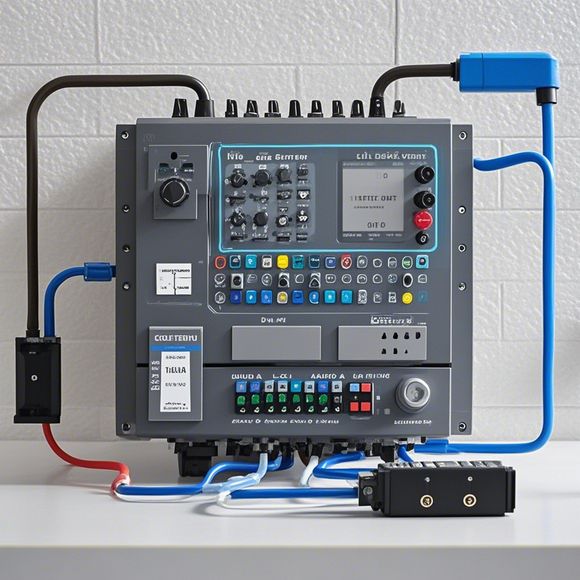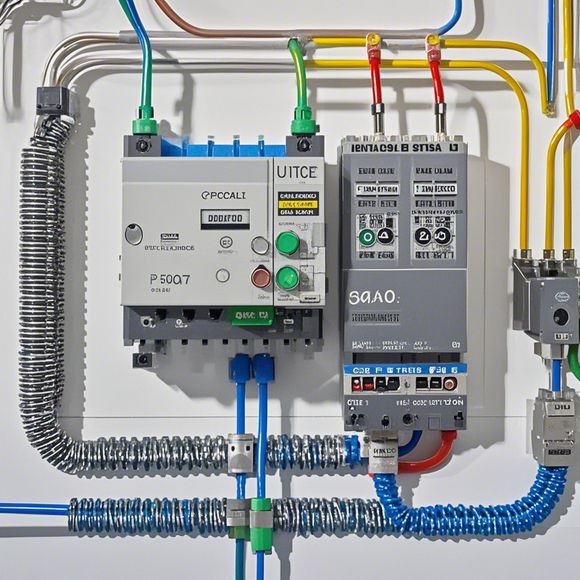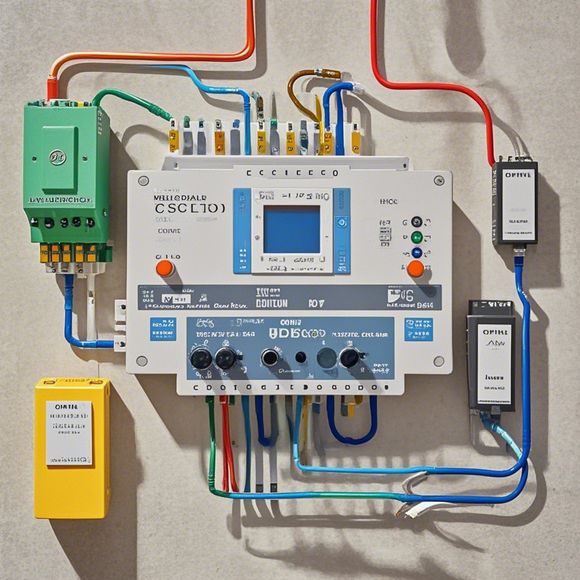PLC Controller Operation and Application
The PLC (Programmable Logic Controller) is a device that can be programmed to perform a variety of tasks in industrial environments. It is used to control and monitor the operations of various machines and devices, such as conveyors, pumps, and lighting systems. The PLC operates by receiving input signals from sensors or other devices, processing them according to preset algorithms, and then outputting control signals to actuators or motors to achieve the desired result.One of the key features of the PLC is its modular design, which means that it can be easily customized and expanded to meet changing needs and requirements. The PLC also has advanced features such as real-time monitoring and diagnostics, fault detection and isolation, and communication protocols such as Profibus and EtherCAT. These features make the PLC an ideal solution for industries that require precise control and automation of their systems.
In today's world, the field of manufacturing has undergone a significant transformation with the advent of industrial automation. One such technology that is revolutionizing the way industries operate is the Programmable Logic Controller (PLC). The PLC controller is an essential component in many manufacturing processes that automates operations, improves efficiency, and reduces costs. In this article, we will delve into the working principles of the PLC controller and its various applications in different industries.
The PLC controller is a powerful tool that controls and monitors industrial processes. It consists of a microprocessor, input/output interfaces, and memory. The microprocessor serves as the brain of the PLC, processing commands from the operator or other devices and sending out signals to control various industrial equipment. The input/output interfaces allow the PLC to connect to external devices, such as sensors, switches, and actuators, to gather data and send commands to them. The memory stores programming code for the PLC, which defines the behavior of the device.
One of the most significant advantages of the PLC controller is its flexibility and adaptability. Unlike traditional mechanical systems, which are limited by physical components, the PLC can be programmed to perform complex tasks and respond to changing conditions without requiring physical adjustments. This allows the PLC to work seamlessly in various environments, including harsh chemical or thermal conditions.

Another advantage of the PLC controller is its ability to communicate with other devices in the manufacturing process. For example, the PLC can be integrated with sensors and actuators to monitor and control equipment, while also communicating with other machines to coordinate their operations. This communication enables faster response times and improved overall performance.
The PLC controller is widely used in various industries, including manufacturing, transportation, and energy. In manufacturing, it is used to control robotic arms, conveyor belts, and other automated equipment, ensuring consistent quality and productivity. In transportation, it is employed in trucking and rail systems to optimize routes and reduce fuel consumption. In energy, it is critical in power generation plants, allowing for precise temperature and pressure control, reducing energy losses, and ensuring safe operation.

In conclusion, the PLC controller is a powerful tool that has transformed many industries by automating processes and improving efficiency. Its flexibility, adaptability, and ability to communicate with other devices make it a reliable solution for modern manufacturing and industrial applications. As technology continues to evolve, the PLC controller will continue to play a crucial role in driving industry forward towards more efficient and sustainable operations.
Content expansion reading:

Articles related to the knowledge points of this article:
Mastering the Art of Plc Controllers: A Comprehensive Guide to Understand and Implement
PLC Programming for Automation Control in the Manufacturing Industry
How to Use a PLC Controller for Your Business
The Role of Programmable Logic Controllers (PLCs) in Foreign Trade Operations
PLC Controllers: A Comprehensive Guide to Understanding Their Prices